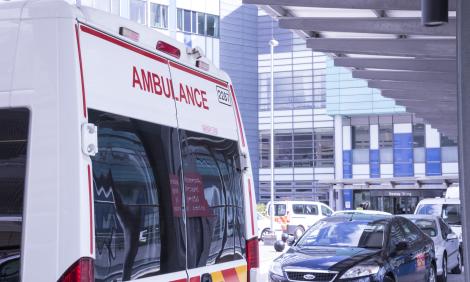Emergency medical technician
As an emergency medical technician, you may operate as a single responder to an incident or support a paramedic on a double-crewed ambulance. You’ll have many of the same skills as paramedics, such as being able to assess, triage and provide lifesaving treatment.
Emergency medical technicians may also be called associate ambulance practitioners or trainee emergency ambulance crew, depending on the individual ambulance service.
Working life
You will work as part of the emergency and urgent care team. You will have direct contact with service users or others, providing high quality and compassionate care.
Day-to-day duties and tasks involve:
- working as part of an ambulance crew responding to emergency (999) and urgent calls
- providing emergency and urgent assistance
- driving safely and progressively at high speed
You will assess, treat and manage service users at the scene, reducing the need for them to be admitted to hospital if it is appropriate to do so, by either referring service users to alternative care provisions or safely discharging them on scene.
In your role as an emergency medical technician, you will need to be confident in:
- evaluating different approaches to solving problems
- communicating results accurately and reliably, with structured and coherent arguments and the ability to evaluate and interpret these
Emergency medical technicians in the NHS will usually work standard hours of 37.5 per week, these are on a shift pattern. Shifts cover 24 hours a day, seven days a week throughout the year. So your work pattern includes evenings, nights, early starts, weekends and bank holidays. You need to be prepared to work outdoors in all conditions, where necessary.
How much will I earn?
Most emergency medical technicians jobs will usually be paid at band 4 of NHS Agenda for Change. If you are in a trainee position, you may receive a percentage of the band 4 rate, rising to the full band rate once qualified.
You’ll also have access to our generous pension scheme and health service discounts, as well as 27 days of annual leave plus bank holidays.
Entry requirements
To become a emergency medical technician, you'll need to do a level 4 apprenticeship. You will typically need to:
- have a general standard of education and be committed to self-development
- have a full UK manual driving licence with a minimum of 1 years driving experience. If you have any penalty points for minor motoring offences, you should check with the ambulance service you are applying to directly.
- hold the full C1 category on your driving licence at the point of applying for an apprenticeship
- have your own transport to attend training and work
- be able to demonstrate experience in dealing with a range of people of different ages and social groups
- be able to demonstrate a high degree of physical fitness by successfully meeting a fitness assessment by the employing ambulance service trust
- have an understanding of compassion, respect and dignity through patient-centred care
- have dedication, motivation and drive to ensure you take ownership of your own learning
Training
The apprenticeship will usually take 12-18 months. Following an initial classroom-based course, you will continue your apprenticeship and learning whilst out on the road, responding to emergency calls as a valued member of the ambulance service trust’s frontline team. If you successfully complete the course, you will be eligible to continue as a qualified EMT role with the ambulance service trust.
Where the role can take you
You could progress to become a team leader or supervisor. You would be in charge of a team of emergency medical technicians, responsible for allocating work and drawing up shift rotas.
You could apply to train as a paramedic. You would have to pass entrance exams and meet other requirements before being accepted onto a full-time paramedic course, paramedic degree apprenticeship or student paramedic position with an ambulance service trust.





